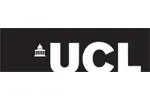We're moving! This site will be relocating to goingto.university in 2026. Please update your bookmarks to the new address.


the United Kingdom
University College London (UCL)| The award | How you will study | Study duration | Course start | Domestic course fees | International course fees |
|---|---|---|---|---|---|
| MA | Full-time, Part-time | 2 - 3 years | January, October | - | - |
This masters degree will:
This masters degree provides the opportunity to:
Qualified teachers with an interest in working with children with SpLD and literacy difficulties, and/or who wish to have the AST or AMBDA qualification that enables them to be specialist teachers or practising assessors of pupils with dyslexia.
Entry requirementsA good first degree in a relevant subject plus a teaching qualification, and ideally appropriate experience of educational settings or working with children with literacy difficulties. You will need to have access to a school in which you can assess and teach pupils with literacy difficulties.
Core topicsBy coursework assignments and recordings of administering assessments and teaching pupils with literacy difficulties, plus a research report of 6,000 to 7,000 words or dissertation of 10,000 to 12,000 words.
AttendanceFace-to-face evening and daytime sessions at the IOE, and online learning.
Where do our students go?This is a recently established MA programme. Graduates of IOE studies in special education are currently working as:
Below are some suggested courses at other providers that you may also be interested in:
Bachelor in Transportation Design Bachelor Degree
IAAD. - Institute of Applied Art and Design
Find out moreMaster of Laws LLM Law and Business: Finance and Accounting LLM
University of Exeter Law School
Find out moreManagement of Innovation and Sustainable Business Development MSc
NTNU School of International Business
Find out moreIf you do not meet the entry requirements for this course then consider one of these postgraduate preparation courses from another institution:
Graduate Diploma of Engineering (Industrial Automation)
Engineering Institute of Technology
Find out moreThere are 633 other courses listed from University College London (UCL). A selection of these are displayed below:
Join the StudyLink email list and never miss a chance to turn your study abroad dreams into reality!

See other universities in London
Find out more about studying in the United Kingdom